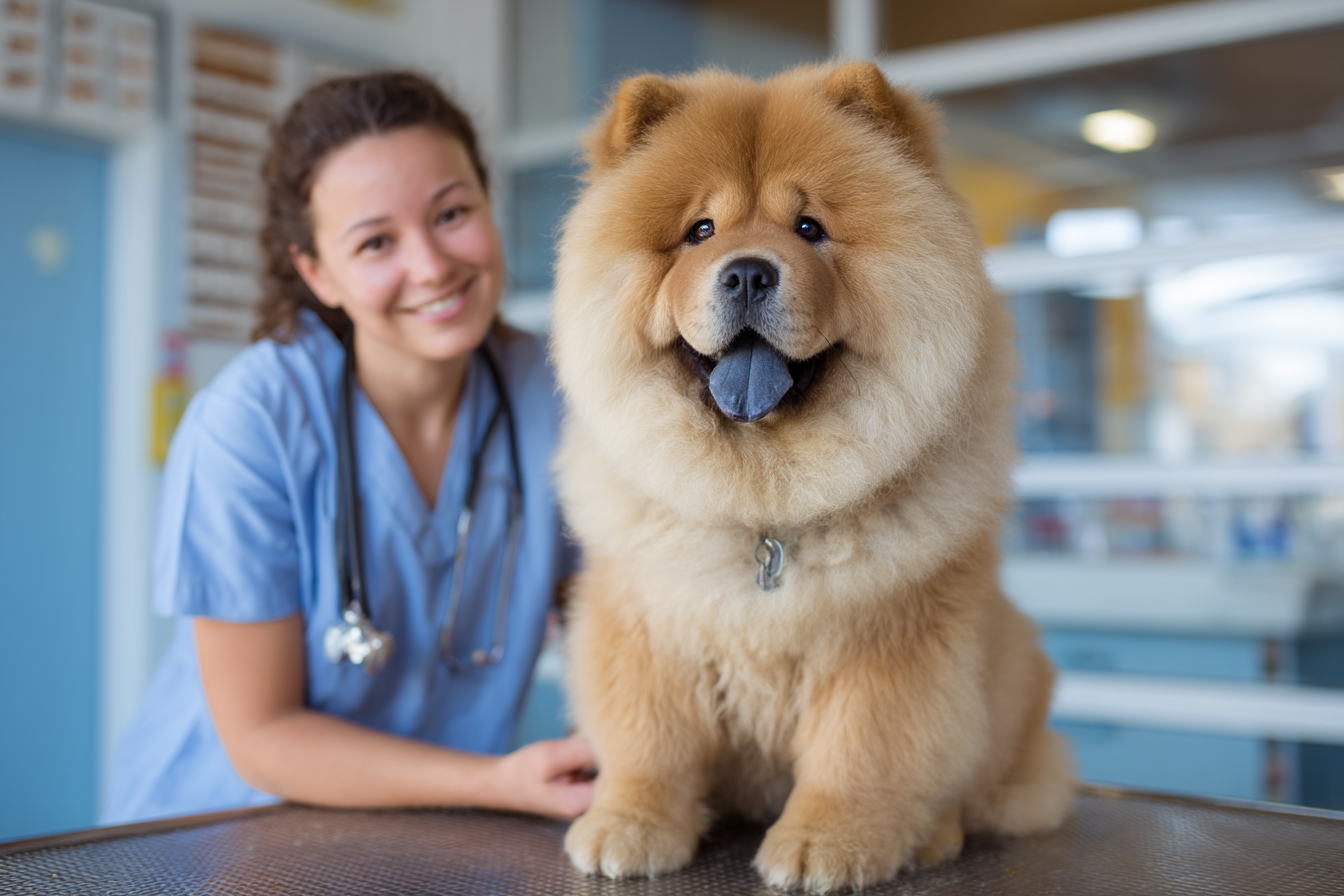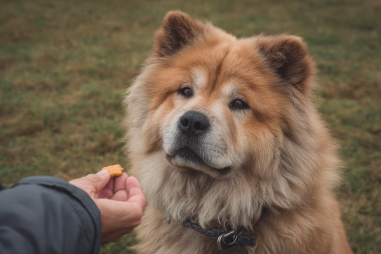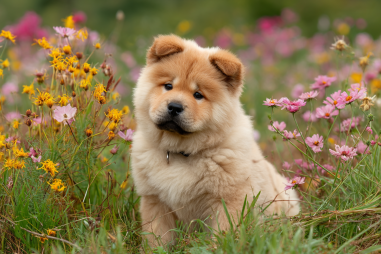Ensuring your Chow Chow is healthy and protected from common canine diseases starts with a proper vaccination schedule. Vaccines play a crucial role in preventing serious illnesses and maintaining your dog’s overall well-being. Whether you have a playful puppy or an adult Chow Chow, understanding when and which vaccinations are necessary can make a significant difference in their health journey. This guide will walk you through the recommended Chow Chow vaccination timeline, the importance of each vaccine, and tips on keeping your furry friend safe all year round.
Why Vaccinations Are Essential for Chow Chows
Chow Chows are a unique and beloved breed known for their dense coat and lion-like mane. Like all dogs, they are susceptible to various viral and bacterial diseases that can be debilitating or even fatal. Vaccinations act as a shield, training your dog’s immune system to recognize and fight off these harmful pathogens before they cause illness. Beyond individual protection, vaccinating your Chow Chow helps prevent the spread of contagious diseases to other pets and even humans in some cases.
Some diseases targeted by vaccines can have severe consequences, such as distemper, parvovirus, and rabies. These illnesses can cause symptoms ranging from mild discomfort to severe organ failure and death. By adhering to a recommended vaccination schedule, you provide the best defense for your dog’s life and improve their chances of a long, healthy existence.
Core Vaccines and the Recommended Schedule for Chow Chows
Core vaccines are those considered essential for all dogs, regardless of lifestyle or geographic location. The following are the main core vaccines typically recommended for Chow Chows:
- Canine Distemper Virus (CDV)
- Canine Parvovirus (CPV)
- Canine Adenovirus (CAV-2), which protects against hepatitis
- Rabies Virus
These vaccines are typically administered in a series starting as early as 6 to 8 weeks of age for puppies. Here is a general timeline for core vaccinations:
- 6–8 weeks: First dose of the distemper, parvovirus, and adenovirus vaccine (often combined as DHPP or DA2PP vaccine)
- 10–12 weeks: Second dose of DHPP
- 14–16 weeks: Third dose of DHPP and first rabies vaccine
- 1 year: Booster dose of DHPP and rabies vaccine
- Every 1–3 years: Follow-up boosters for DHPP and rabies, depending on local regulations and vet recommendations
Following this schedule ensures the puppy’s immune system develops strong protection before being exposed to potential disease risks. For adult Chow Chows, vaccination schedules may focus more on boosters if previous vaccinations are up to date.
Optional Vaccines: Tailoring Protection to Your Dog’s Lifestyle
Aside from core vaccines, your vet may recommend optional vaccines depending on your Chow Chow’s lifestyle, geographic location, and specific exposure risks. These vaccines offer protection against diseases that may be less common but still pose a threat in certain situations. Some of these include:
- Bordetella bronchiseptica: A common cause of kennel cough, especially important if your dog frequently visits boarding kennels, doggy daycares, or groomers.
- Leptospirosis: Caused by bacteria found in contaminated water or soil, especially in areas prone to flooding or with significant wildlife activity.
- Lyme disease: Transmitted by ticks, necessary in regions where Lyme is endemic.
- Canine Influenza: Relevant for dogs in frequent contact with large groups of dogs, such as shows or shelters.
Discuss your Chow Chow’s daily routine and environment with your veterinarian so they can suggest which optional vaccines are best suited for your pup’s needs. Remember, the goal is to balance protection without overloading their immune system.
Recognizing Signs of Vaccine Reactions
Most Chow Chows tolerate vaccines well, but occasionally, mild side effects or, rarely, severe reactions may occur. It’s important to monitor your dog after receiving vaccines and know what to watch for. Common mild vaccine reactions include:
- Lethargy or tiredness
- Reduced appetite
- Soreness or swelling at the injection site
- Mild fever
- Sneezing or coughing (in rare cases)
These symptoms typically resolve within 24 to 48 hours and can be managed with comfort and observation. However, more severe vaccine reactions, although rare, require immediate veterinary attention. Symptoms to look out for include:
- Difficulty breathing or wheezing
- Facial swelling
- Severe vomiting or diarrhea
- Collapse or seizures
- Hives or widespread itching
If you notice any of these signs after vaccination, contact your vet right away. Being aware of potential reactions helps ensure prompt treatment and keeps your Chow Chow safe.
Keeping Track: The Importance of Vaccination Records
Maintaining organized vaccination records for your Chow Chow benefits both you and your veterinarian. These records typically include the dates of vaccinations, vaccine types, batch numbers, and any observed reactions. Here’s why keeping up-to-date vaccination documentation is important:
- Ensures timely boosters: Avoid missed or late vaccinations that could leave your dog vulnerable.
- Legal requirements: Rabies vaccinations often require proof for licensing and travel.
- Medical history reference: Helps vets evaluate your dog’s health fully during check-ups and emergencies.
- Boarding and daycare entry: Many facilities require proof of current vaccines for admission.
You can store vaccination records digitally or as printed documents. Many veterinary offices also provide vaccine calendars or reminders to help you keep appointments on track.
Scheduling Regular Vet Visits and Booster Shots
Vaccinations are just one part of your Chow Chow’s healthcare routine. Regular veterinary visits allow your vet to perform wellness checks, update vaccines, and catch potential health issues early. It’s recommended to schedule annual or biannual vet appointments based on your vet’s advice and your dog’s health status.
Booster vaccinations are essential to maintain immunity over time. Typically, core vaccines are boosted every 1 to 3 years, while some optional vaccines may require annual boosters. Your veterinarian will tailor booster schedules based on vaccine types and your dog’s individual risk.
When planning visits, try to:
- Book appointments before vaccines expire
- Consult your vet about any new health concerns or allergies
- Discuss parasite prevention along with vaccination updates
- Keep a routine to reduce your dog’s stress during visits
Consistent veterinary care ensures your Chow Chow remains protected, comfortable, and lively throughout their life stages.
Vaccinating your Chow Chow according to a thoughtful and vet-approved schedule is one of the best ways to safeguard their health and happiness. From puppyhood through to adulthood, each dose builds a stronger immune defense against dangerous diseases. By monitoring for potential reactions, keeping accurate records, and regularly consulting your vet, you pave the way for a fulfilling, joyful life with your furry companion. Remember, a healthy pup today means many wonderful memories tomorrow.







